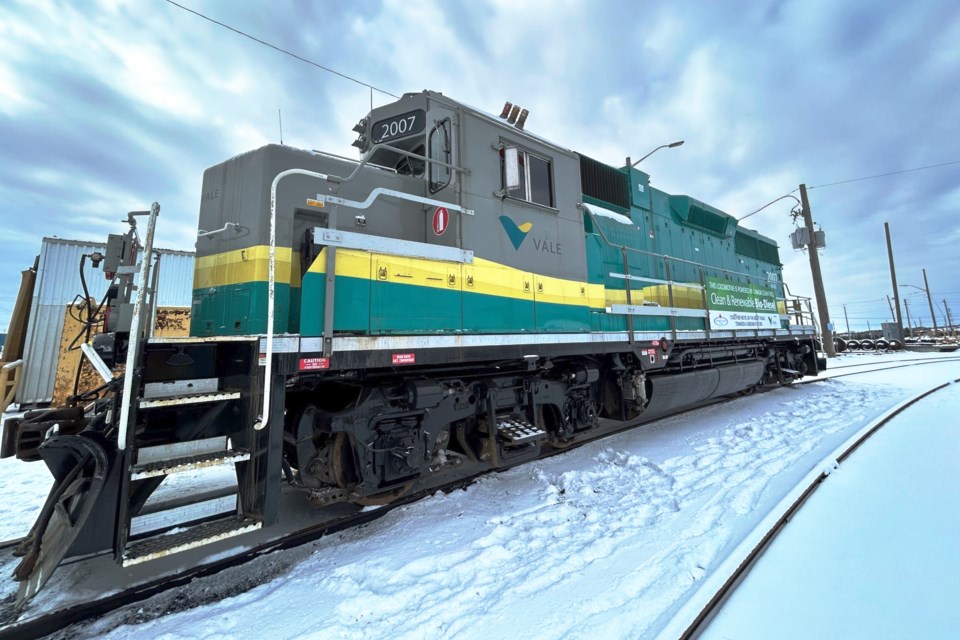Vale Base Metals is taking a serious look at reducing the use of traditional fossil fuels in Sudbury, specifically in the case of diesel rail locomotives used at the Copper Cliff smelter.
The company recently kicked off a trial using biofuel blends in one of the company locomotives to get a better understanding of how different biofuel blends perform, especially during Sudbury's winter months, said a recent social media posting.
"We will be trialling a variety of clean fuel blends in the form of both the bio and renewable diesel, with fuel blend ratios modified to suit outdoor temperatures based on the time of year," said Alex Mulloy, a low-carbon specialist at Vale Base Metals.
Vale said the goal of the Sudbury trial is "to successfully demonstrate use of biofuel blends in locomotive engines with an eye to reducing carbon emissions from surface mobile equipment in support of company-wide decarbonization efforts."
A billboard sign on the locomotives states the engine is powered by recyclable biodiesel fuel provided by Canada Clean Fuels, which describes bio-diesel as "a renewable, clean-burning diesel replacement that is reducing North American dependence on foreign petroleum, creating jobs and improving the environment,” on its website.
In the social media post, Vale said the trial will last nine months.
"Throughout the nine-month trial, our transportation, maintenance and low-carbon teams will collect operational and performance data to better understand how different biofuel blends perform, especially during Sudbury’s cold winter months," Vale said on social media.
When asked if the idea came from workers in Sudbury, the company response was as follows.
"Our workforce is critical in helping to identify, trial and implement potential low-carbon solutions and this trial is no different. This co-operative approach is key as we look to reduce carbon emissions, in line with company wide decarbonization goals and customer expectations," said Vale.
The company was asked if this process has been used at other Vale locations.
"We are confident that biodiesel can be reliably implemented as a short-to-medium term fleet decarbonization solution, given recent improvements in availability and quality of supply," said the company.
In November, the company announced it was using biofuel blends (diesel and used vegetable cooking oils) on a cargo ship loaded with iron ore across the Pacific Ocean.
Len Gillis covers mining and health care for Sudbury.com.




